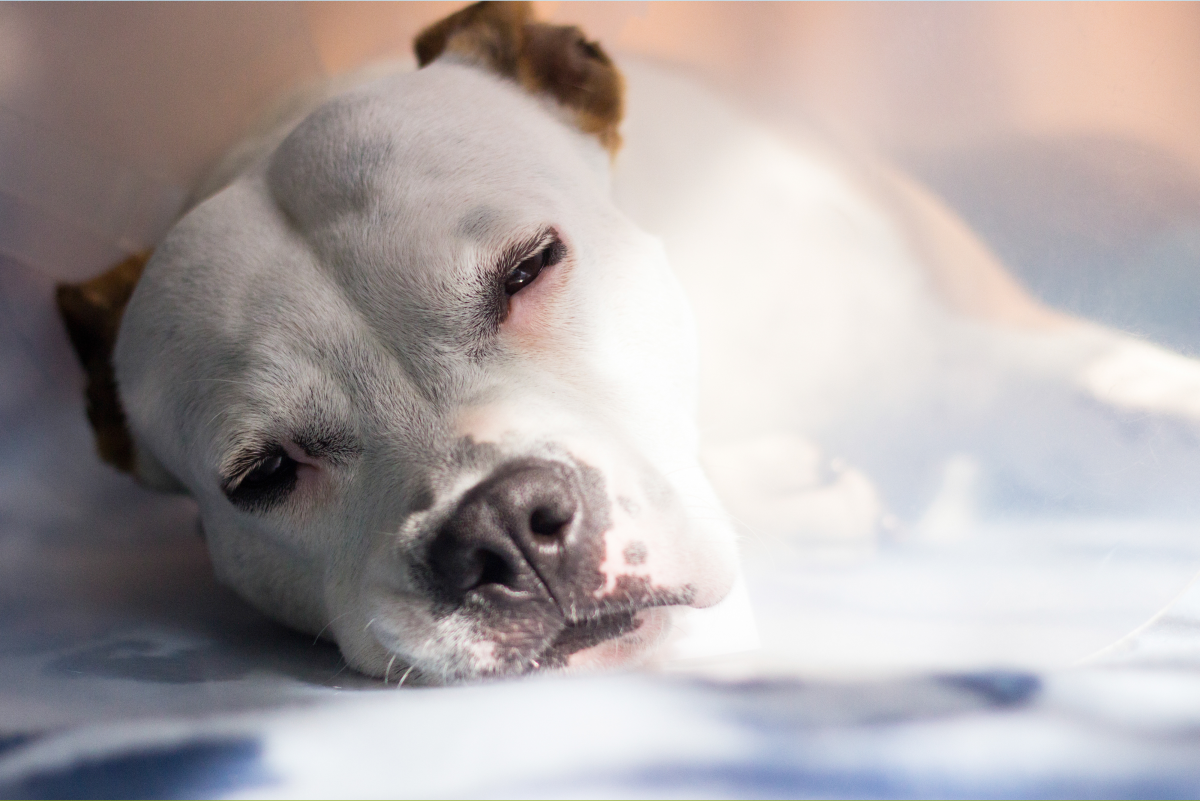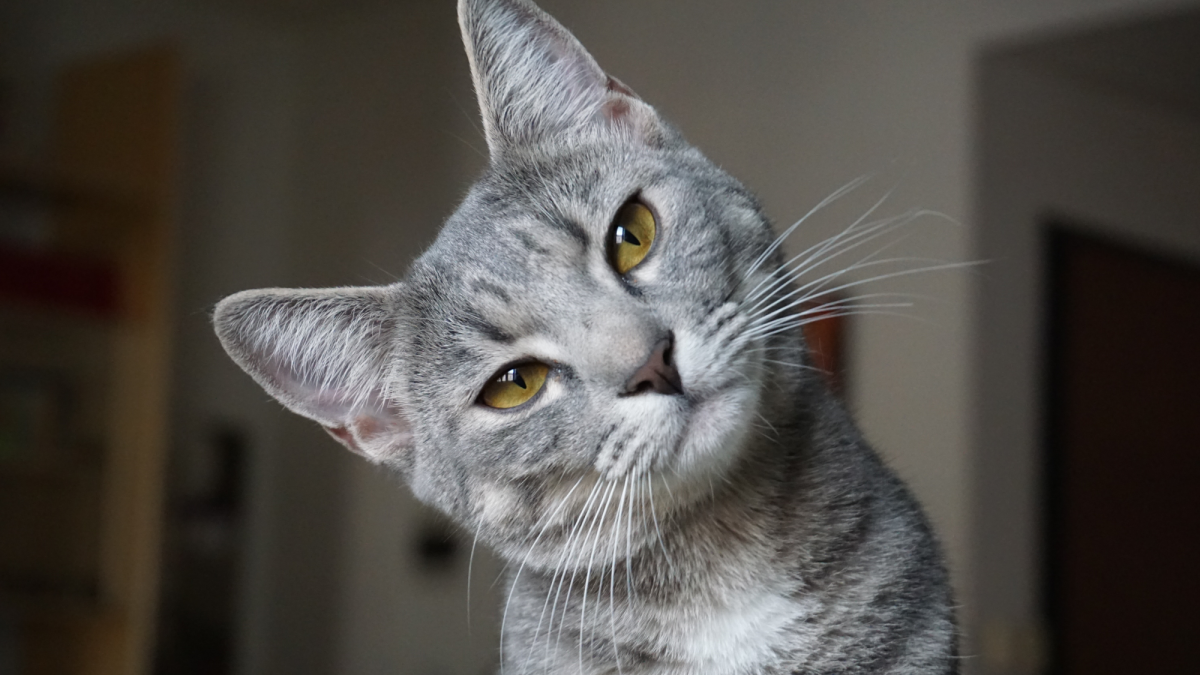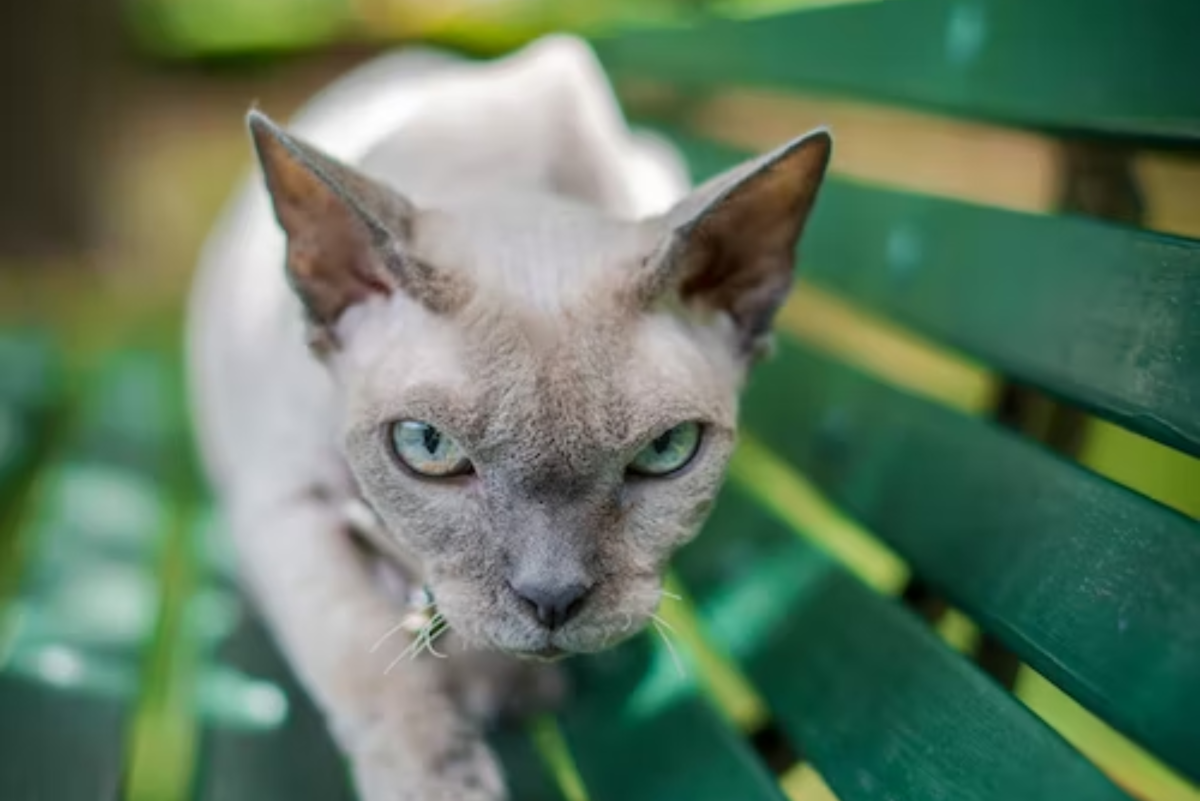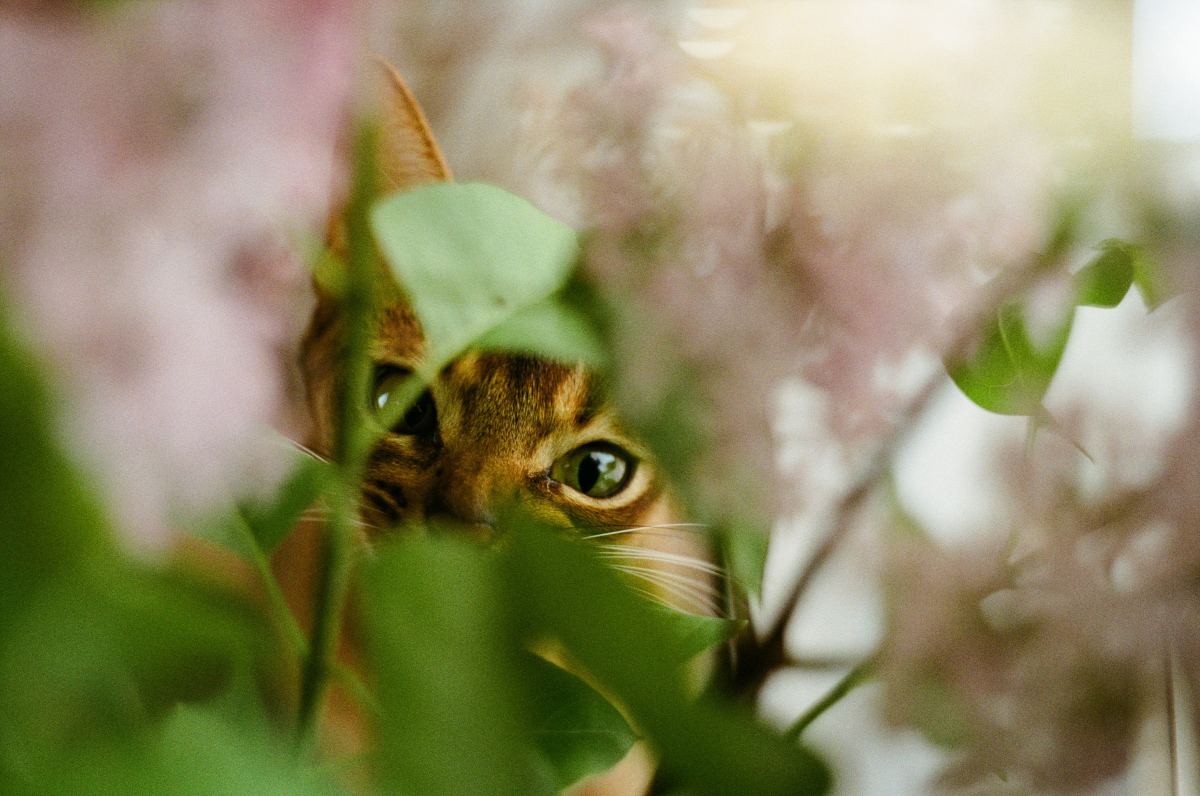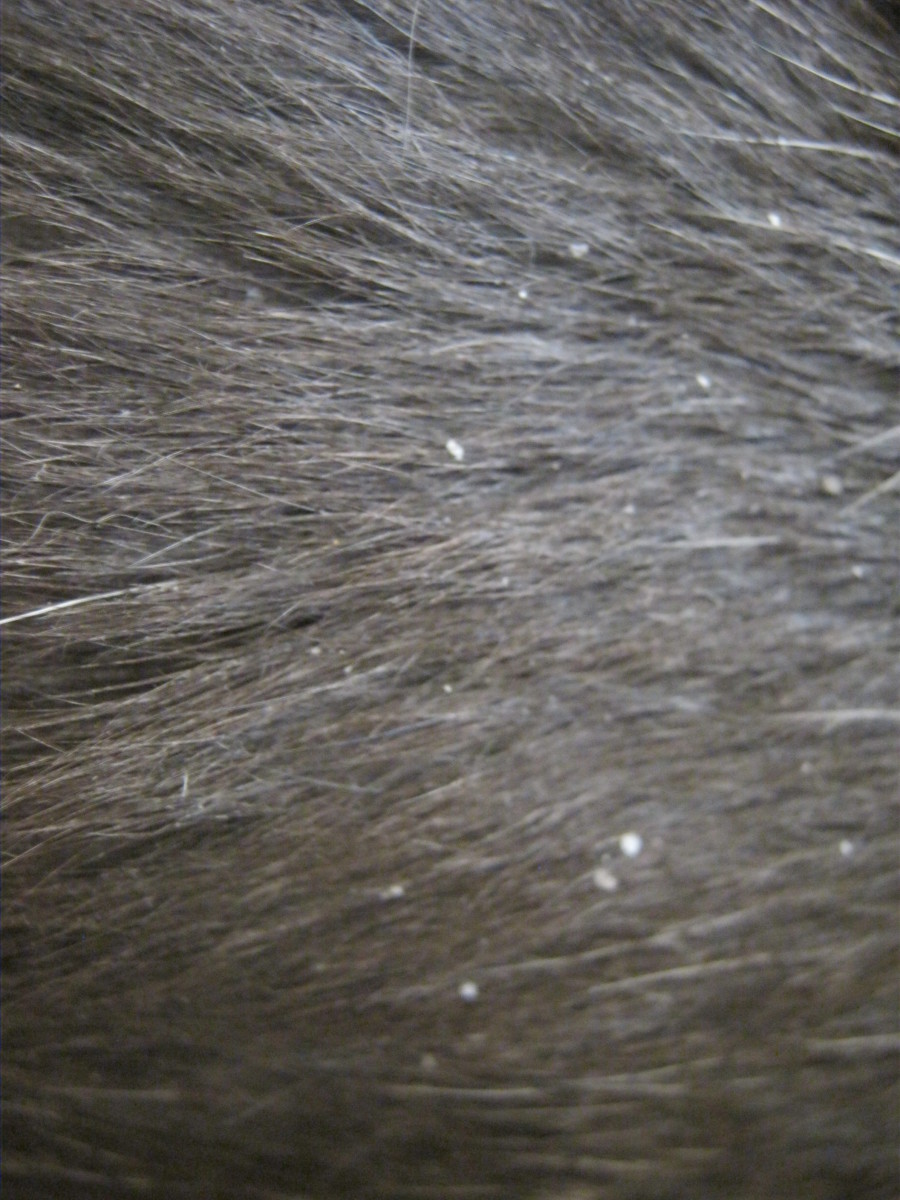- HubPages»
- Pets and Animals»
- Cats & Cat Breeds»
- Cat Health
Pancreatitis In Cats
Penny Lane
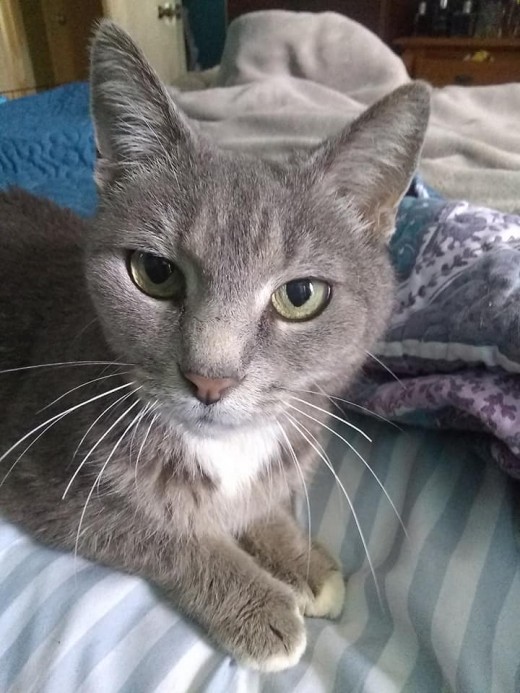
Penny Stole My Heart
I lost my 18 year old cat in February of this year and my husband and I agreed we would not get anymore cats.
One day I was in Pet Smart getting food for all our fur children and I always visit the cat room to give the cats a pep talk that someone will soon come and take them home.
This little girl named Twinkles at the time reached her paw out and was screaming for me to pet her. I looked at her and I knew I could not leave her there. Two other cats were being adopted and she was the only one left so my heart said to please save her.
When I brought her home we crated her for the first 24 hours to let the others confirm it was okay for her to stay. She screamed for food non stop no matter how much I fed her. But then the inevitable of vomiting ensued.
I took her to the vets for a once look over since she was with other cats at the Humane Society. She only weighed 5lbs and should weigh eight to nine pounds. I told her about her being hungry all the time and she said that it was probably because she had to fight for her food with other cats. She told me to smash her food on a plate so that she would have to work to get it and maybe that would slow her down.
She continued to vomit and then she vomited blood. I was so scared for her. I called the vet and brought her in for another check up and the vet told me she suspected irritable bowel disease. She did some blood work and an x-ray and medication for her stomach. The x-ray showed she had a buck shot in her right thigh. That really upset me that someone would do that to a cat. But it happens. She told me if she did not improve she would do a barium swallow.
A few days later and no relief, I took her back for the barium swallow. It appeared that her food was not staying in her stomach long enough to make her feel full. Most cats have the opposite motility issues where the food doesn't move through quick enough.
More medication and prescription food was ordered and if she was not better they would do special blood test to determine if she had irritable bowel disease. I had already spent over 800 dollars on her with still no concrete diagnosis. I had just presumptions of what could be wrong.
Finally after more vomiting the vet gave her something for nausea, a B-12 shot, fluids under her skin and the blood work that was sent to Texas.
The results: Pancreatitis.
I can tell you anything you want to know about iguanas, rabbits and snakes but because our other cats were healthy I did not know that a cat could even get pancreatitis.
What Is Penny's Future
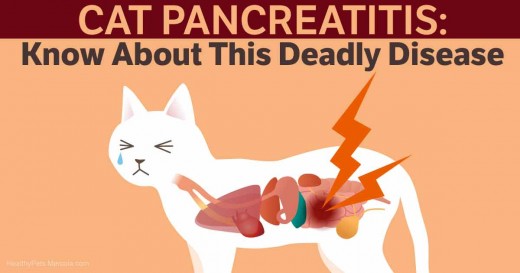
Age is a Factor In Pancreatitis
When I adopted Penny they told me she was four years old. I was stumped as to why she was found on the street and at some time she had to of had an owner. Maybe they knew they couldn't afford her treatment so they just let her go.
The vet said Penny is probably ten years old or older because young cat's do not usually get pancreatitis. It is found in older feline's.
Pancreatitis
Symptoms of Pancreatitis in Cats
Most of these symptoms are not even present in cats and pancreatitis is more common then people think.
Symptoms include:
Lethargy (common)
dehydration (common)
Decrease in appetite (common)
Weight loss (common)
Vomiting (less common)
Diarrhea (less common)
Abdominal pain (difficult to assess, assume present)
Signs of fever (less common)
Penny had none of the symptoms except for vomiting. She was eating, drinking and never acted like she was in pain.
Other symptoms they may experience is:
Lack of grooming (cats are chronic groomers)
Not sleeping (Penny's Issue)
Licking their bellies (it is telling you something is wrong)
Both physically and emotionally, chronic pain has a damaging effect on a dog or cat’s well-being. Animals with chronic pain may change their movement or behavior in an attempt to limit discomfort. When they move less or move in abnormal ways, they become stiff, and pain increases. They may also reduce their interactions with humans or other animals because being touched causes pain. That puts a kink in their social relationships with family members. (Pittsburg Post)
Pay close attention to your older pets. Sometimes we overlook symptoms and don't respond to their plea for help.
Feline Pancreatits
Penny's Future
Although pancreatitis is treatable it is not curable. She will never be rid of it, will have to stay on medications the rest of her life and be on special food forever. The vet wanted to do an ultrasound and a endoscopy but we decided not to do it for it all to come back to the same diagnosis. It would have been another 2,000 dollars for those test.
We will fill her life with an abundance of love and feed her frequent small meals. I give her B-12 shots weekly and if she gets dehydrated I will take her to get fluids.
What a blind eye I had for such a sick little girl. I never thought of anything that pointed to pancreatitis. I was thinking along the lines a parasite, which she was wormed twice by the vet, upset stomach but never this.
My husband and I have 14 rescues and Penny has topped all their illnesses.
I really don't know what her future holds, but she will be loved and when there is nothing more we can do for her, I will let her go.
Penny's Gratitude and My Fur Coat
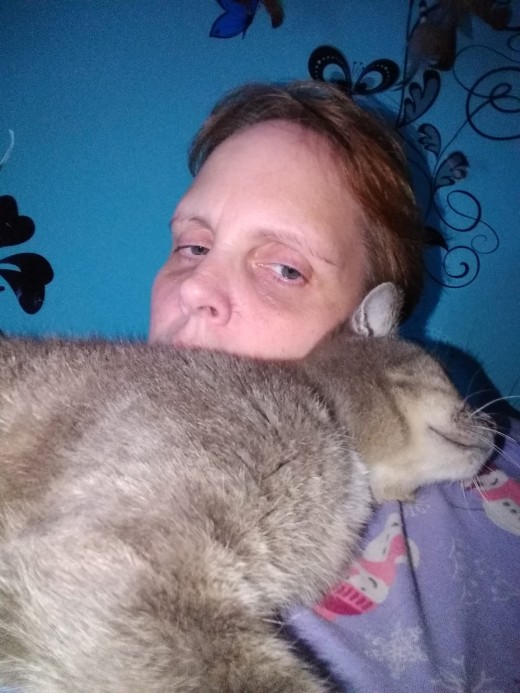
Adopt Don't Shop
We have rescued many animals from the Humane Society. Even though Penny is going to need constant care, I will do whatever it takes to give her a better life. Don't shop in pet stores. There are many good dogs and cats at local shelters.
If you adopt a pet know it is for life. People take their old dogs and cats and dispose of them like garbage at a shelter because they are of no use to them any longer. I can't imagine my life without all my babies. They all run to the door when I come home and give me unconditional love.
Have a heart and adopt from a shelter. Most of the time they are the best animals you will ever spend money on. They say money can't buy happiness but yes it can when you adopt a fur baby.
This article is accurate and true to the best of the author’s knowledge. It is not meant to substitute for diagnosis, prognosis, treatment, prescription, or formal and individualized advice from a veterinary medical professional. Animals exhibiting signs and symptoms of distress should be seen by a veterinarian immediately.

